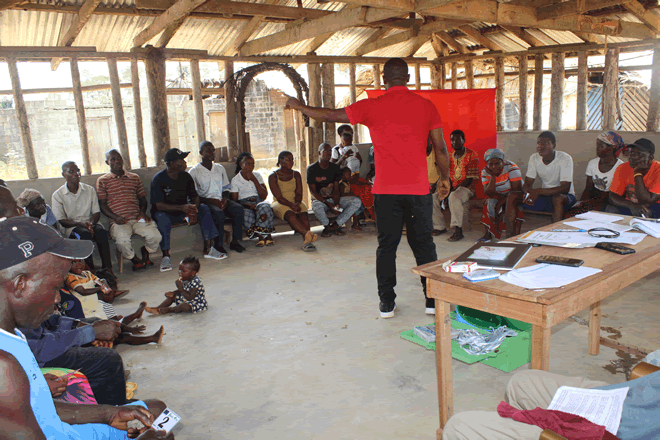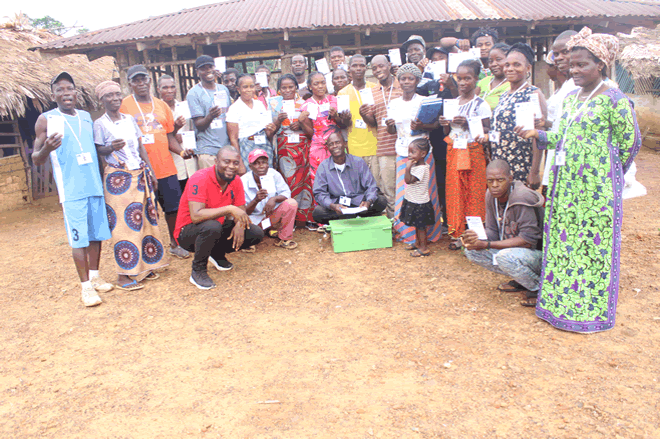During CASTRAP’s baseline survey in the South East of Liberia, it was observed that most farmers have no access to cash savings to enlarge and sustain their enterprises or farm sizes. Due to this, they cannot plan their operations, production, or predict their expected income.
The country’s financial services are concentrated in the big cities of Monrovia and Ganta and especially curtailed in the South East. As a result, the culture of saving is weak. Despite these apparent challenges, community-initiated savings clubs (Susu clubs) abound and have served to fill the financial inclusion gaps occasioned by the absence of formal financial structures in most cases. Where these informally organized clubs have worked, it is usually due to systems that promote prudent and transparent management practices that foster trust-building amongst members. Unfortunately, in many instances, savings clubs have collapsed due to mismanagement caused by weak systems of checks and balances.
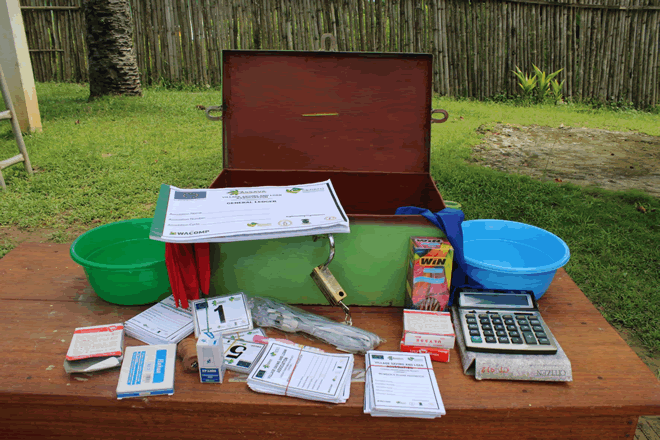
A well-organized village savings and loans association has been found to promote the viability and sustainability of savings clubs. This has proven to be the case in the South East, where development partners such as IDH have promoted VSLAs. For CASTRAP, viable VSLAs not only serve as good entry points for the project interventions but are also a vital source of investment and upgrade of the cassava value chain.
The success of microfinance has been widely recognized in the last couple of decades as a testament that the poor are “bankable”. VSLA is a low-cost financial service founded on the principle of fund pooling, designed to serve the very poor whose income is irregular and is considered high risk by microfinance institutions (MFIs).
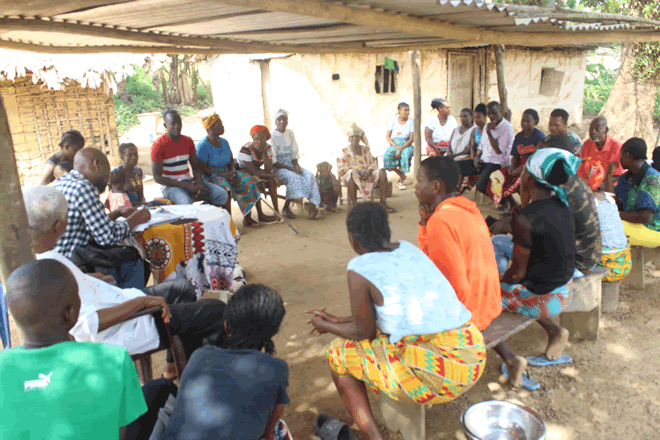
The project has, since April 2022, facilitated the establishment of ten (10) VSLAs in all the project counties with a total membership of three hundred (300), about 70% of whom are women. Each established VSLA was given a complete VSLA kit and a seed fund equivalent to USD 200.00. The cash injection is to build an initial solid foundation and loan portfolio and to de-risk the initial loan disbursement.
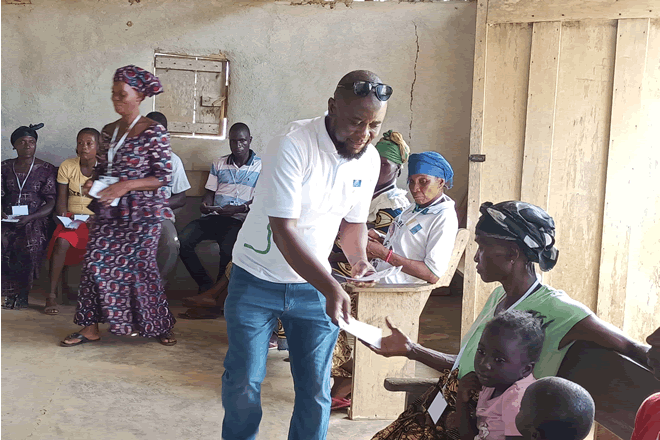
The activity which kicked off with community sensitization and awareness, attracted over four hundred and sixty community members. The registration process recorded over 98% subscriptions prompting the project to close registration ahead of schedule. As a result, there are already demands to double the number of VSLAs to 20.
Besides seeing VLSA as a savings club, CASTRAP considers it an avenue to promote business skills through training and coaching. Already structured and established group members under the CASTRAP VSLA intervention, have expressed excitement and enthusiasm after receiving training from the project team led by its agribusiness and enterprise development officer.
